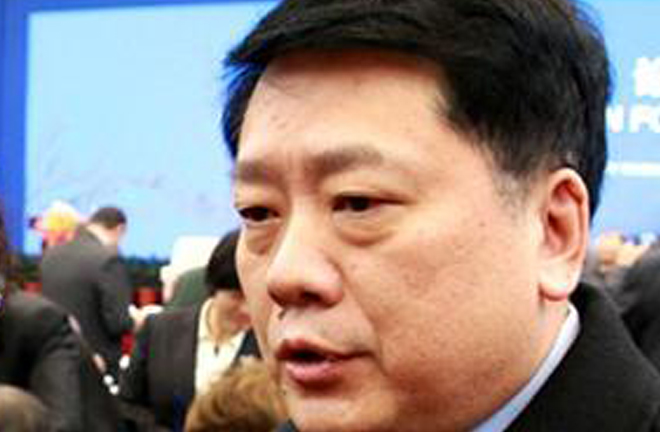QIN YAQING: Major-country diplomacy must steer clear of three traps that could hinder China’s rise

At the Central Conference on Work Relating to Foreign Affairs in 2014, CPC General Secretary Xi Jinping proposed major-country diplomacy with Chinese characteristics characterized by mutually beneficial cooperation, representing a new stage. In my opinion, it is vital to pay attention to the following three traps related to the rise and fall of world powers by drawing on historical experience of other major countries and referring to theories of international relations.
Paul Kennedy trap
In his 1987 The Rise and Fall of the Great Powers, Paul Kennedy examined how great powers developed over a period of 500 years, and blamed their decline on “imperial overstretch,” which refers to a constant unsustainable expansion of an empire to other parts of the world. The process tends to drive itself. As the empire expands, it requires more resources, and it must expand to gain those resources. This further intensifies as the empire approaches its peak, leading to the overuse and dispersion of strength. Even if the power has an abundance of resources, those could eventually be exhausted. Based on the idea, Kennedy prophesied the extinction of the Soviet Union and the decline of the US.
To escape the “Paul Kennedy trap” and avoid strategic mistakes, we need to focus on our specific goals and be careful not to expand while ignoring reality. With the rise of China, more are calling for “Chinese responsibility,” which in essence is to require China to undertake more international obligations. However, China, in spite of its status as the second-largest economy, is still a developing country. And diplomatic strategies should be formulated in line with actual strength and reality.
Moreover, it is important to strike a balance between economic development and national security. The rise and fall of Spain, the Netherlands, France, Britain and the Soviet Union indicated that a nation’s economic capacity and its military strength are interdependent, and thus there must be a balance between them. At the fourth summit of the Conference on Interaction and Confidence-Building Measures in Asia, also known as CICA, Xi called for a common, comprehensive, cooperative and sustainable security strategy for Asia, which also explicated the dialectical unity of economy and security.
Thucydides trap
Ancient Greek historian Thucydides concluded in his book History of the Peloponnesian War that an emerging country will pose a challenge to an established great power, which will attempt to contain the emerging country, ending in war between them.
To avoid the “Thucydides trap,” we need to pay special attention to strategic competition with the US, which is still a severe problem for China.
Objectively speaking, there are structural conflicts between China and the US, two major countries in the world. Nonetheless, both sides want to avoid the patterns of the past, in which great powers contended for hegemony, and there’s little difference in terms of “no conflict,” “no confrontation” and “mutually beneficial cooperation.” However, the US is doubtful about “mutual respect,” regarding China’s rise as a challenge to the core US goal of world dominance. It has never given up the Cold War mentality and shows no respect for the Chinese political system and order, which also poses a challenge to China.
As a result, concerted efforts are needed to avoid the “Thucydides trap.” China should adhere to the principles of peace, development, cooperation and mutual benefit, and it should support inclusive development. At the same time, Western powers should abandon their views of binary opposition between China and the US. Instead, they should reform the existing international systems and accept China’s peaceful development.
Olson trap
The “Olson trap” refers to the trap of the logic of collective action. According to American scholar Mancur Olson’s The Logic of Collective Action, large interest groups will naturally take shape in a nation’s rapid development path. They pursue maximized share of total wealth and “free ride” on the efforts of others while neglecting the overall interests of the nation.
Reasonable and efficient systems for coordination are needed to escape the “Olson trap.” As more and more Chinese goods, capital and talent are exported overseas, China has become more open to the outside world and more internationalized, and its interests and influence have begun to expand outward. In the process, however, there’s higher risk of negative effects of the “Olson trap” in major-country diplomacy.
In such a context, coordination among all domestic departments has become particularly important. With a large territory and great regional differences, China has the headache of overlapping management and vicious competition among regions, departments and enterprises. Fragmentation, lack of coordination and mutual constraint have become prominent problems for China’s foreign strategy.
Furthermore, we need to consider the overall domestic and international situations. The establishment of the National Security Council after the 18th CPC National Congress aims to overcome the problem of excessive diplomatic roles and the lack of coordination. Only by getting rid of the dilemma of collective action can Chinese diplomacy come into play and help create and maintain a period of strategic opportunities for national development.
Qin Yaqing is president of China Foreign Affairs University.
